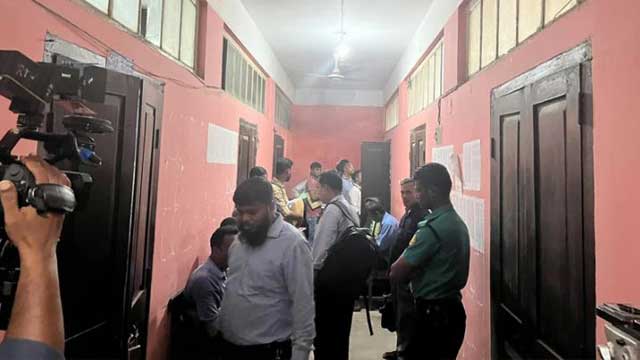Dhaka third labour court asked journalists to leave the courtroom during the hearing in a case filed against Nobel laureate and Grameen Telecom chairman Professor Muhammad Yunus over labour law violation.
The court chairman Sheikh Merina Sultana gave the instruction soon after the hearing started at about 12:30pm saying that only the case-related officials would be allowed inside the court room.
Opposing it, Younus’s lawyer Barrister Abdullah Al Mamun raised questions and wanted to know to the court whether it was the trial in camera that led to not allowing journalists inside the courtroom.
He also said, ‘It is a public court, so anybody can see the trial proceedings. But if it is trial in camera then the judge can ask media to leave the courtroom. Otherwise, there is no scope to oust journalists from the courtroom.’
He also referred that the Appellate Division of Supreme Court also allowed journalists during court proceedings.
In replay, the court chairman, Sheikh Merina Sultana said, ‘We cannot complete the trial in the case keeping everyone in the courtroom.’
Later, Younus’s lawyer Mamun cross-examined witness Tariqul Islam, inspector of the Directorate of Inspection of Factories and Establishments.
Earlier, on August 22, the court recorded testimony of the first witness in the case, Tarikul Islam.
Advocate Khurshid Alam Khan represented the DIFE, the plaintiff organisation of the case during the hearing.
DIFE inspector Arifuzzaman filed the case with Dhaka third Labour Court in September 2021 against four people, including Professor Yunus.
According to the case, a team of DIFE went on an inspection to Grameen Telecom and found violations of labour laws like not regularising 101 staff and not establishing a welfare fund for the labourers, among others.
Besides, 5 per cent of the company’s dividend was supposed to be paid to the workers participation fund which was not paid, read the case statement.





